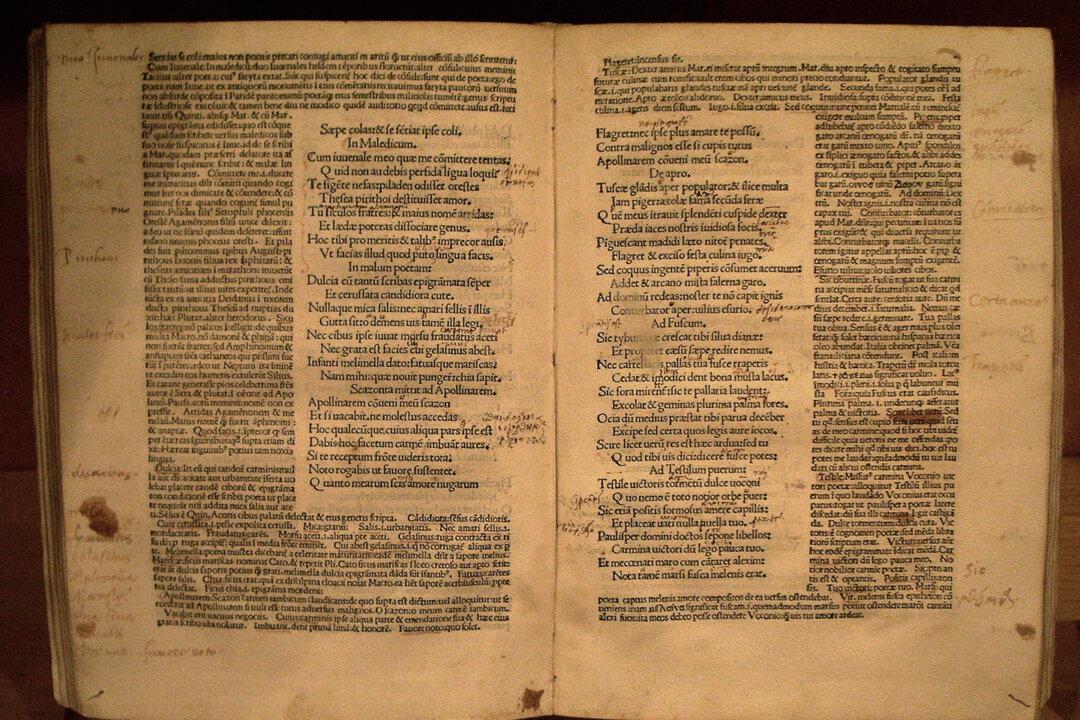“I can resist everything except temptation.” So wrote Oscar Wilde, perhaps unsurpassed in English in the art of the epigram. This particular example perfectly illustrates the definition of this word: “a pithy saying or remark expressing an idea in a clever and amusing way.”
Certain poems are also regarded as epigrammatic. Here’s “Ironist” by American poet Bruce Bennett:
I mean the opposite of what I say. You’ve got it now? No, it’s the other way.
Samuel Taylor Coleridge even wrote an epigram defining this form by demonstration:What is an Epigram? A dwarfish whole, Its body brevity, and wit its soul.
Epigram derives from the Greek “epigraphein,” meaning “to write on, to inscribe,” and from the Latin “epigramma,” which carries the same basic meaning. Sometimes users of the word confuse it with “epigraph,” which refers to a brief inscription on a building or a coin, or to a short statement at the beginning of a book, usually summing up its theme. “Epithet” may also cause a mix-up, but this word refers to terms of abuse, such as your thoughts when the driver ahead of you goes 30 miles an hour down the on-ramp leading to the interstate.





